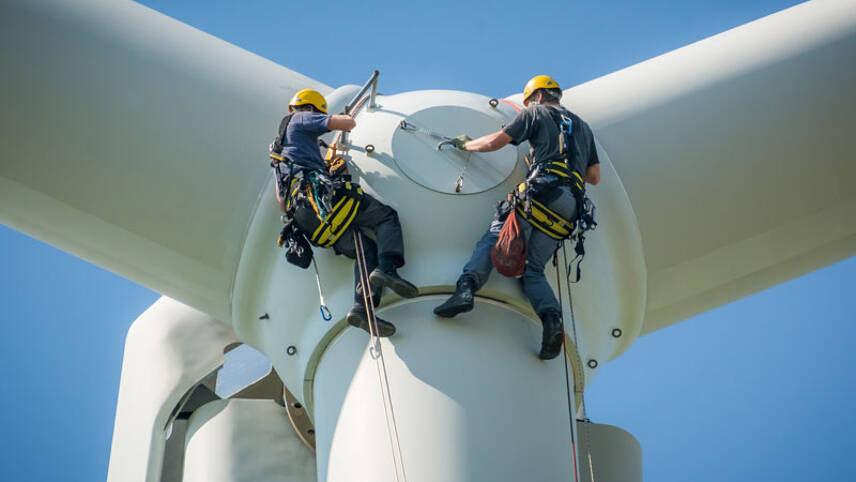Register for free and continue reading
Join our growing army of changemakers and get unlimited access to our premium content

That is according to a new report from Oxford Economics and Energy UK. Released late last week, the report analyses the potential economic benefits of a range of scenarios which bring the UK’s net carbon emissions to zero by 2050.
The scenario with the most rapid and front-loaded transition, the ‘Net-Zero Transformation’ scenario, offers the greatest benefits in terms of net job gains and economic growth.
Under this scenario, the private sector is given the clarity and confidence needed to invest in rapidly scaling clean technologies this decade. Private investment could be £165bn extra, through to 2050, than it would be using the existing policy pathway set by the Government.
This investment would help to catalyse a 6.4% growth in UK GDP by 2050, equivalent to £240bn.
Growth would be strongest in the manufacturing sector, both in terms of economic growth and job creation. Jobs would expand rapidly in fields including solar and wind component manufacturing, upstream nuclear and electric vehicle (EV) component manufacturing.
Also set to gain significantly would be the construction, automotive, energy generation and energy storage and distribution sectors. The report estimates total net job creation of 226,000 by 2050 in the ‘Net-Zero Transformation’ scenario.
In other scenarios, in which private investment does not come at scale until the early 2030s or even later, the transition will be more expensive and the net economic benefits smaller, the report warns. The general rule of thumb is that the slower and less orderly the transition is – and the less the public sector contributes in the coming years – the more costly it will be.
The Climate Change Committee (CCC) has estimated the cost of the net-zero transition to be 0.5% to 1% of GDP. This has been concurred by the Office for Budget Responsibility (OBR). The new report cautions that a badly managed transition could come at a net loss to the British economy.
Energy UK is using the report to reiterate its calls for the UK Government to fast-track a credible rival to cleantech subsidy packages and industrial strategies in markets such as the US and EU. The Chancellor is expected to present his plans at the Autumn Statement in October.
Energy UK’s deputy chief executive Dhara Vyas said: “Far from being a burden on the economy, a proactive and ambitious approach will boost incomes, expenditure, profits and tax receipts over the long-term – all of which will leave more money for Government spending on other priorities like health and education.
“Committing fully to the transition will reap rewards by incentivising private investment – so reducing the amount needed from the public purse – and creating a virtuous circle which will drive further innovation and technological advances to bring costs down further.”
Parliament’s return
The report came shortly before the return of Parliament from summer recess this Monday (4 September).
As he comes back to the House of Commons, Prime Minister Rishi Sunak will doubtless be pressed for clarity on some of the green policy decisions he has either taken – or reportedly been pondering – during the summer.
Net-Zero Review author Chris Skidmore is pushing for the opportunity for MPs to feed back on Sunak’s plans for a major new oil and gas leasing round this winter. Others are seeking clarity on potential changes to policies relating to EV manufacturing and adoption.
Additionally, MPs will get the chance to interact with Claire Coutinho in her new remit as Energy Security and Net-Zero Secretary. The junior minister was promoted last week as part of a mini Cabinet reshuffle, in which Grant Shapps was moved across to the Defence Secretary position.


Please login or Register to leave a comment.